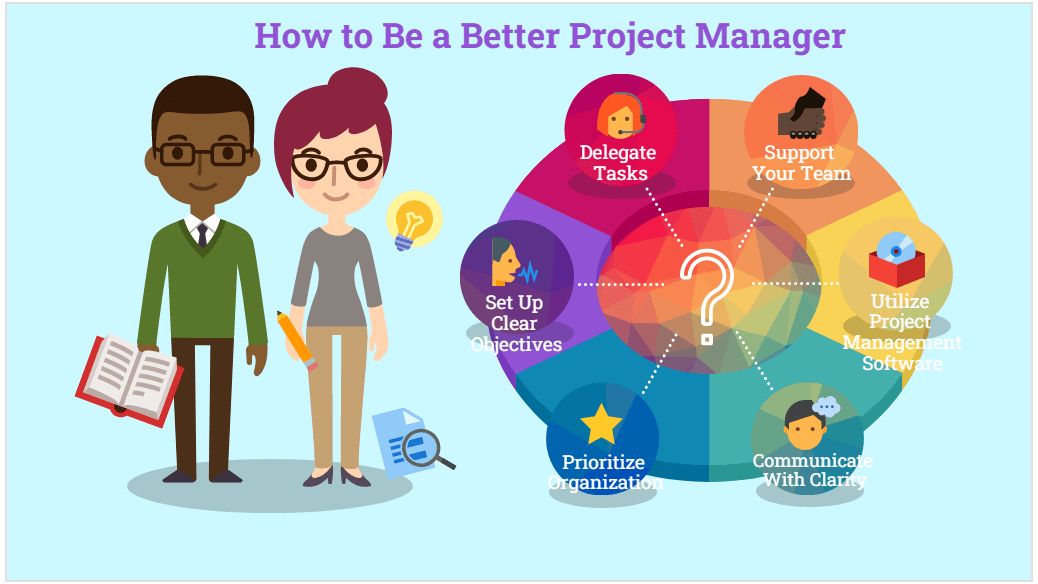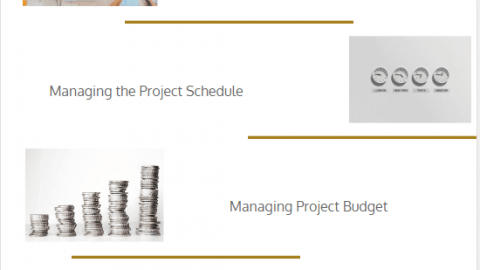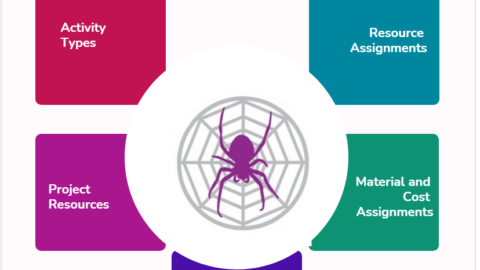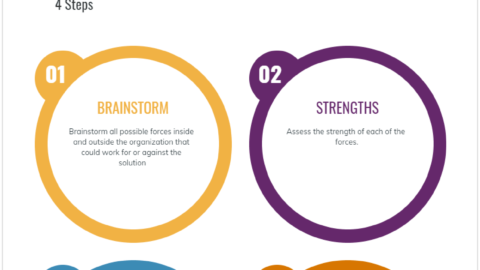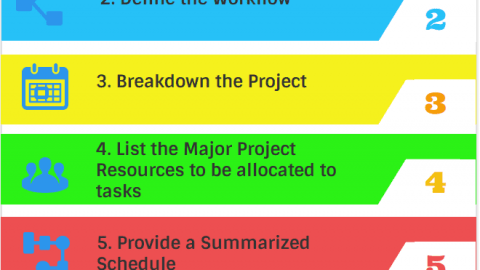How to Be a Better Project Manager
The role of a better project manager is to provide you and your team with the goals, organizational systems, and feedback necessary for creating a positive workplace result. Everything from coding to content development can benefit from a high-quality project manager. This article will cover some of the actionable steps you can take to become better at working in this role. Everything from setting up a coordinated goal-setting process to implementing online collaboration tools can support you in this process. The role of a project manager requires a willingness to self-evaluate, learn from your mistakes, and make improvements for next time. Here are a few methods for boosting your management skills throughout the duration of a workplace project.
Table of Contents
The Role and Responsibilities of a Project Manager
Prior to discuss how to be a better project manager, we encourage you to watch our informative video on the role and responsibilities of project managers. This video provides valuable insights into the crucial role project managers play in driving project success, as well as the diverse range of responsibilities they undertake to ensure seamless execution. Take a moment to watch the video and gain a deeper understanding of the fundamentals of effective project management
Support Your Team With Expertise As a Better Project Manager
Before beginning any project, and sometimes even before selecting your team, take the time to get a good idea of every process that you’ll need to manage in order to bring the project from start to finish. The best company leaders have the expertise to support their team members for each of these project processes. If there are any parts of the process that you don’t fully understand quite yet, it’s always best to take as much time as you can to develop as much expertise as possible for each of these processes.
Developing as much expertise surrounding the project deliverables and processes helps you evaluate your team’s performance down the road, but also gives you a clear overhead picture of everyone’s progress. From a team member’s perspective, there’s nothing worse than having a supervisor who doesn’t understand what you do and is thereby unable to set realistic deadlines.
Set Up Clear Objectives to Be a Better Project Manager
Setting goals and measurable objectives for your project is always an essential first step. Obviously, your goal is to complete the project before the deadline. But what are the specific objectives for each team member? In addition, what deadline can you set to break down each component of the project? All objectives should have some form of KPI (key performance indicator) that assists with measuring team progress. Once you’ve set up your project’s objectives and goals, it’s time to begin working.
Prioritize Organization
A considerable portion of project management includes creating an organizational process that supports everyone on your team. The methods with which you organize your project dictate how everyone else views the project. If everything is in disarray, without a deadline or reliable process, it’s tougher to distinguish which tasks and deliverables should be a priority.
The more time you spend keeping your project organized, the more likely you will simply feel good about its progress. Ask your team for input on what they’d like to see at different stages of the project. You’ll also need to do your best to avoid micromanaging your team to become a better project manager. Sometimes, the smaller details are best left to your other team members. If you are looking for project organization structure ideas, you might want to check out this guide to structuring your project.
Utilize Project Management Software
If organizing your workplace project is overwhelming, you may want to consider using a project management tool or software. Many of these management tools are available online and for free. You’ll be able to set up a calendar that everyone can access, make it easy to share files, and communicate with others when working remotely. More expensive project management tools, such as Asana and Clickup, are good options if you’re seeking a larger shift in task management software for your business.
Communicate with Clarity
The best or better project manager can easily and quickly communicate with their team, through both formal and informal means. Choose your meeting times carefully and plan what you’d like to say in advance so that you aren’t occupying too much of everyone’s time. One of the easiest ways to derail the organization of the project is to communicate through too many separated avenues. While email is a solid work tool, it rarely serves well for communicating with someone at your office or company. Instead, as a better project manager, you might want to consider working with a tool like Slack, which allows for quick, short messages to each individual you’re working with, to divided groups, to the entire team.
Delegate Tasks
Many project managers, not just those in charge of an individual project, have a tough time asking for help. It’s easy to take responsibility for every small task that ensures the project runs smoothly. However, the collective of these small tasks adds up quickly. Part of managing the project is managing your own time, and to do that, it’s important to remember that delegating minor tasks and deliverables is essential to everyone’s success.
Offer Feedback
Evaluating the successes and failures of your workplace project should always be an ongoing process, rather than a full-scale look back once you and your team have completed everything. You can directly support your co-workers by reaching out to them with feedback. Or at the least making it clear you’re happy to provide this evaluation. Once you do look back on the project after completion, you’ll likely be more satisfied with the result. If you provide support through feedback on a regular basis, of course.
Trust Your Coworkers (And Your Process)
Building trust between you and your coworkers is an essential process for working together successfully. It’s easy to say that you and your coworkers trust each other, particularly if you’ve worked together before, but it’s also equally as easy to overlook underlying distrust. Working together with others should always involve a constant building of trust, rather than a simple acceptance of its existence. Therefore, be honest, take your responsibilities seriously, and follow through on what you say you’ll get done.
Learn From The Results to Become A Better Project Manager
A key component of becoming a better project manager is learning from your prior mistakes. Take time to talk with other people on your team about what went well and what could easily be improved. So, chances are, there are always a few new lessons to take away from one project and carry over into whatever’s next.

Brantlee Bhide is a project manager at HB Consultancy. She has 16 years of experience working as a project professional across varying industries, countries, and cultures. She operates in both business and technical domains using an approach that she developed.

